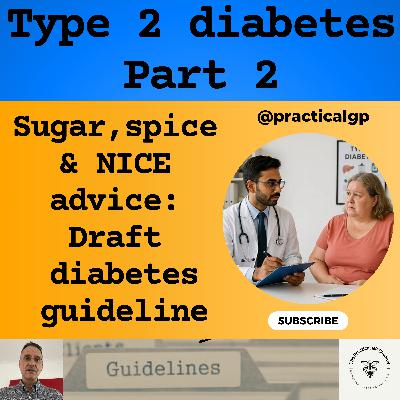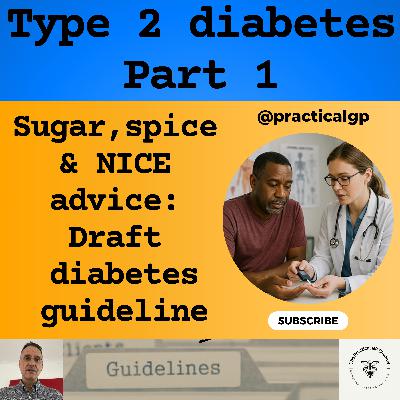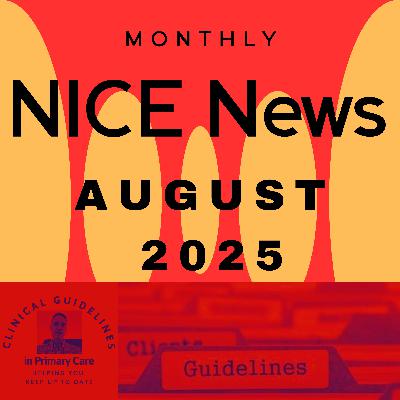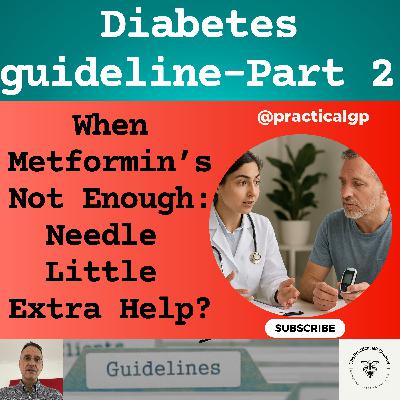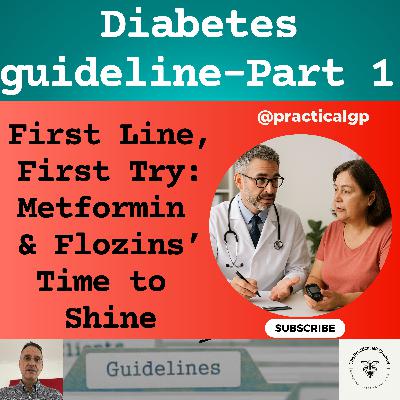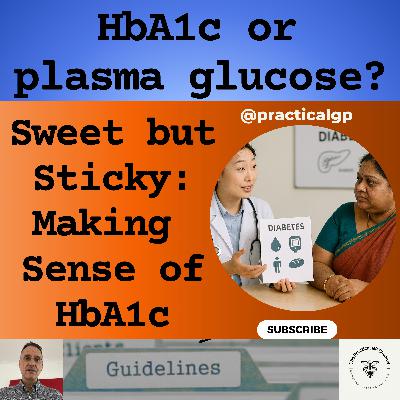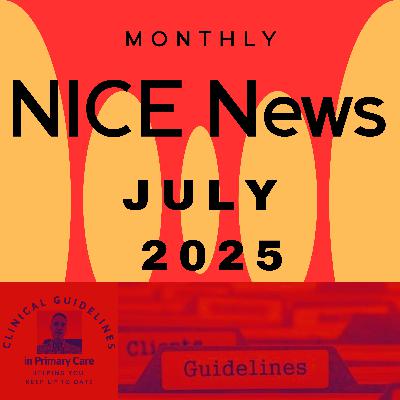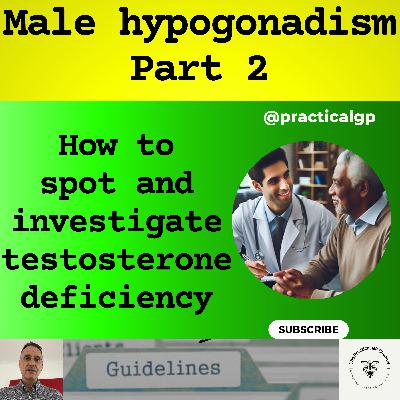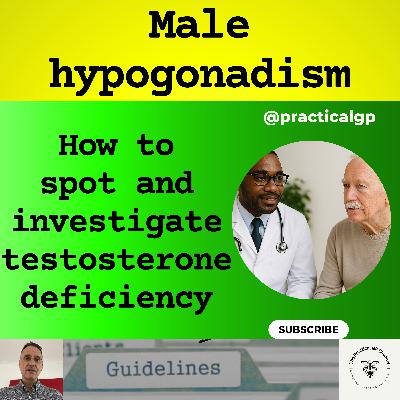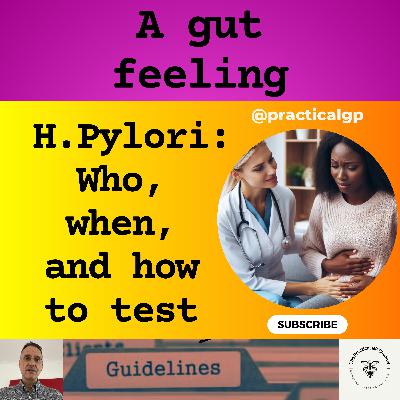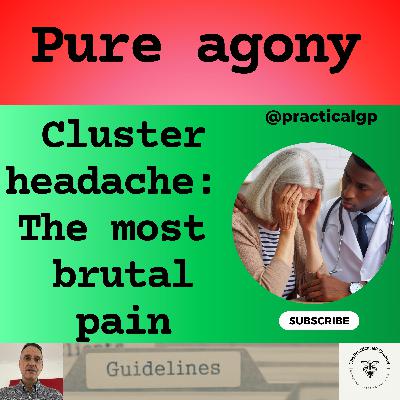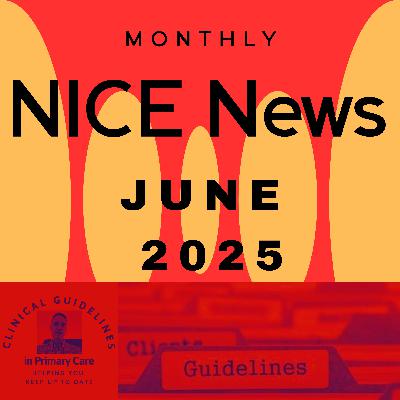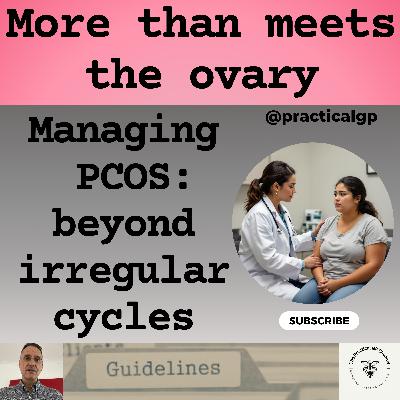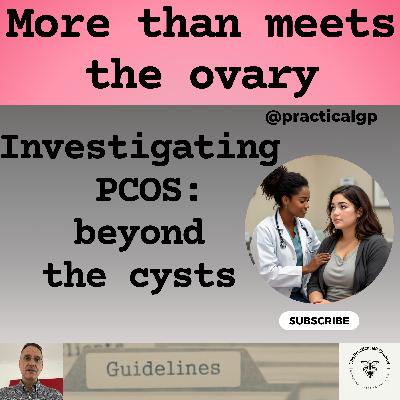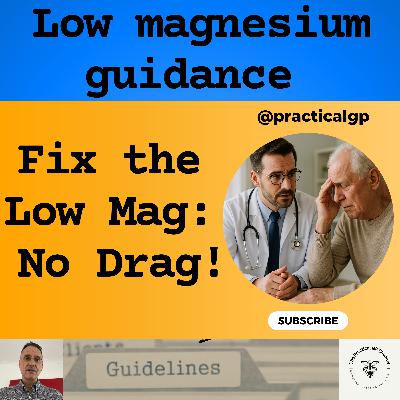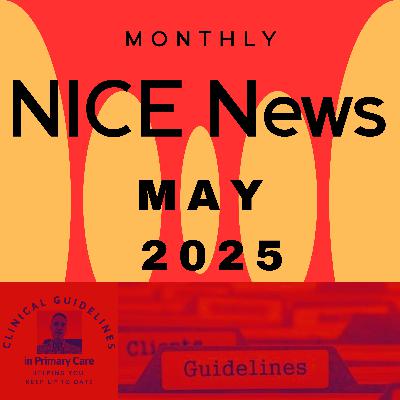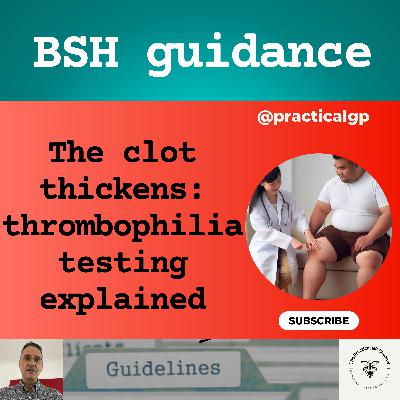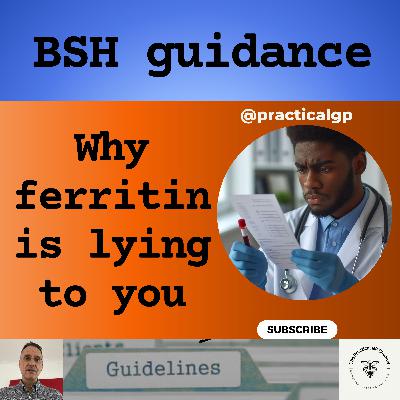The Pill Puzzle Explained: Summarising NICE Guidelines on Contraception
Description
My name is Fernando Florido and I am a GP in the United Kingdom. In today’s episode I summarise and review the various NICE guidance on contraception focusing on the oral methods only. I have summarised the guidance from a Primary Care perspective, at times simplifying some of the guidance to make it manageable.
By way of disclaimer, I am not giving medical advice; this video is intended for health care professionals, it is only my interpretation of the guidelines and you must use your clinical judgement.
There is a YouTube version of this and other videos that you can access here:
The NICE GP YouTube Channel: NICE GP - YouTube
The various guidelines can be found following these links:
· Summary of “Contraception – assessment” : https://cks.nice.org.uk/topics/contraception-assessment/
· Scenario: Assessment for contraception: https://cks.nice.org.uk/topics/contraception-assessment/management/assessment-for-contraception/
· Scenario: Comorbidities and personal characteristics: https://cks.nice.org.uk/topics/contraception-assessment/management/comorbidities-personal-characteristics/
· Scenario: Assessment for specific contraceptive methods: https://cks.nice.org.uk/topics/contraception-assessment/management/assessment-for-specific-contraceptive-methods/
· Contraception - combined hormonal methods: https://cks.nice.org.uk/topics/contraception-combined-hormonal-methods/
· Scenario: Combined oral contraceptive:
· Contraception - progestogen-only methods: https://cks.nice.org.uk/topics/contraception-progestogen-only-methods/
· Scenario: Progestogen-only pill:
Intro / outro music: Track: Halfway Through — Broke In Summer [Audio Library Release]
Music provided by Audio Library Plus
Watch: https://youtu.be/aBGk6aJM3IU
Free Download / Stream: https://alplus.io/halfway-through
Transcript
Hello everyone and welcome. I am Fernando Florido, a GP in the United Kingdom.
Today, we'll be reviewing the various NICE guidelines on contraception focusing on the oral contraception only. I have summarised the guidance from a Primary Care perspective and I have put the relevant links in the episode description.
Please note that this is my interpretation of the guidelines, not medical advice. Always use your clinical judgement when treating your patients.
If you prefer a video format, there’s also a YouTube version of these episodes. The link is in the episode description.
Covering contraception in general is a vast and challenging task. I must admit that there were moments when I felt overwhelmed, as condensing all the necessary information into a concise video seemed nearly impossible, even when focusing solely on oral hormonal contraception. The NICE guidance can be extremely complex, depending on factors such as the woman's place in her hormonal cycle or whether unprotected sexual intercourse has occurred at a specific time. In situations where complexity became unmanageable, I made an effort to simplify the advice while ensuring that the desired contraceptive effect was maintained.
So, with that said, let's dive in!"
The video consists of three parts: an assessment of suitability for oral contraception, information about the combined oral contraceptive, and details about the progesterone-only pill.
Let’s start with the assessment.
How should we start the assessment of a woman requesting oral contraception?
Well, we will
o Exclude Pregnancy
o Take a history and clinical examination.
o Assess the risk of sexually transmitted infections (STIs) and
o Assess for sexual abuse, rape, and non-consensual sex especially in vulnerable women
o Remember that the legal age of consent to sexual activity is 16 years in the UK and that Sexual activity under this age is an offence, even if consensual.
o If a girl younger than 16 years of age requests contraception without parental consent, she should be assessed for criteria that she is competent to make this decision. In England and Wales these are the Fraser criteria but in different jurisdictions the advice will be different. I have not covered this here and if you come across such a situation, I would advise you to seek medicolegal advice.
We are now going to look at what methods of contraception are suitable for women with certain comorbidities. These sections cover the UK Medical Eligibility Criteria (UKMEC) for hormonal contraception.
All oral hormonal contraception, that is, the COC and the POP, can be used in the following cases:
· past or current pelvic inflammatory disease (PID)
· history of gestational diabetes or diabetes with no vascular disease
· a BMI of less than 35
· non-migrainous headaches
· migraine without aura but if migraine without aura develops in a woman already using a COC, we should stop it and give an alternative.
· Fibroids, previous ectopic pregnancy and menorrhagia but obviously women with unexplained vaginal bleeding should be investigated and
· perimenopausal women, although we will need to consider possible risk factors
The POP can be used but combined oral contraception is not recommended in the following cases:
· diabetes with nephropathy, retinopathy, neuropathy, or other vascular disease
· migraine with aura or with a history of it
· multiple risk factors for cardiovascular disease
· BMI of 35 or more
· Hypertension, even if it is adequately controlled.
· Current or History of VTE.
· Major surgery with prolonged immobilization.
· Family history of VTE in first-degree relative younger than 45 years of age.
· Immobility for any reason
· age 35 years or older and a smoker or stopped smoking less than 1 year ago.
In respect of postpartum and breastfeeding
· POP can be used from day 1
· COC can be used from 6 weeks
· Before 6 weeks:
o We should never use the COC in the first 3 weeks.
o We will not use the COC before 6 weeks if breastfeeding or if there are risk factors for VTE
o But the COC can be used from 3 weeks to 6 weeks if not breastfeeding and there are no risk factors for VTE
In respect of girls aged under 18 years
· We will avoid regular hormonal contraception if non-menstruating girls and.
· We will recommend barrier methods for the prevention of sexually transmitted infections
Finally, in respect of the POP
· We will check that the cervical screening is up to date and.
· We will check the additional considerations for drospirenone like:
o Not to be used in renal failure.
o To be avoided in hyperkalaemia or at risk of developing it and
o To have UEs and BP monitored depending on risk factors
How should we follow up women on oral contraception, both the COC and the POP?
· We should do a review 3 months after the first prescription, and annually thereafter.
· At follow up visit




